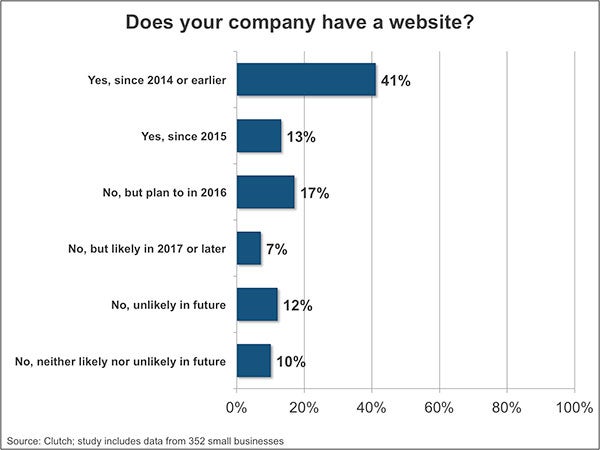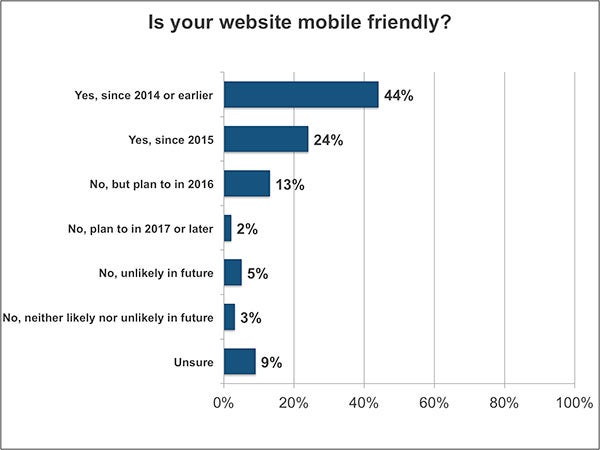It's 2016, But Nearly Half of U.S. Small Businesses Still Don't Have a Website Cost and perceived irrelevance were the most common reasons for the lack of an online presence, according to a survey of more than 350 small businesses.
By Carly Okyle
Opinions expressed by Entrepreneur contributors are their own.

It's hard to imagine the world without the Internet.
For some of us, that is: It may be 2016, but 46 percent of U.S. small businesses still don't have a website for their company, according to a report released by business-to-business research firm Clutch.
Of the more than 350 small businesses surveyed -- the majority of which have less than 10 employees and less than $1 million in annual revenue -- cost was listed as the second-most popular reason for not having an online presence. Lack of technical know-how and the need for upkeep were other popular reasons, while 12 percent said that they use social media in place of a static site.

Related: 5 Essentials for Building a Lucrative Ecommerce Site
The most popular justification for not having a website, however?
Nearly a third of surveyed respondents said that they didn't have one because it wasn't relevant to their business or their industry. That could be a problem. As Max Elman, the founder of Razorfrog Web Design, said in a statement released with the report:
"No matter what type of business you run, if you have customers, it's necessary to have some sort of information online, at least a page describing who you are and offering contact information. It's essential to have this information indexed and shown to those looking for you."

The founder of a company that builds websites, Elman is perhaps not the most objective source. But he has a point: More than 80 percent of Americans say they do online research before making a purchase.
Related: How to Market Brick and Mortar to the Web
For the 64 percent of small businesses that do have a website, many could use a technological upgrade: Nearly a quarter of these businesses said their websites weren't compatible with mobile platforms. Of the online improvements business owners planned to make, search-engine and social engagement topped the list with 40 percent each, followed closely by improvements in content and design.


The report concludes, as expected, that all small businesses in every industry can benefit from a website, be it a single page or more elaborate setup.
In other words, if your business doesn't have a website, it's probably time to change that. And if your business already has a website, particularly one that works on mobile, you're further ahead of the game than you likely thought.
Related: 'Li-Fi' Will Make Your Internet 100 Times Faster












